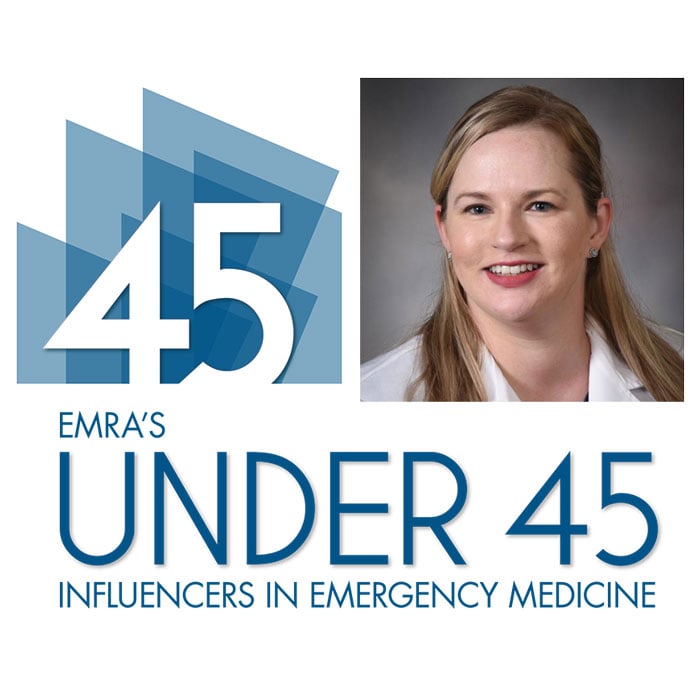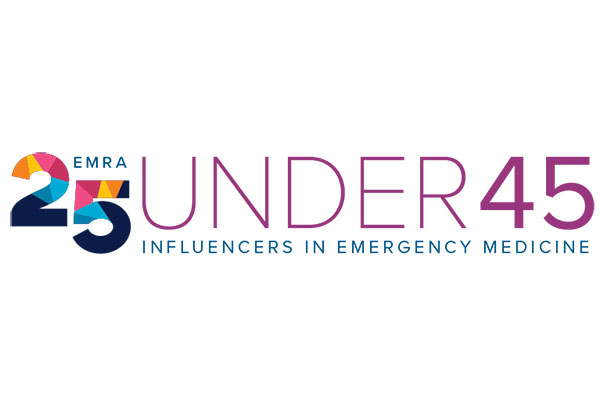Nailing Your Audition Rotation
Ava Omidvar, MS4 MPH, FP-C, St. George’s University School of Medicine
EMRA MSC International Representative, 2022-23
Matt Carvey, MD, EMT-P, FP-C
EMRA MSC International Representative, 2021-22
Starting clinical rotations can be an anxiety-inducing next stage, and many students who excel academically often struggle with the transition to clinical medicine. Once completing a few rotations, it is time for the next level of clinical rotations, an EM audition rotation. Some basic steps should be taken, not of the clinical nor academic suggestion, but are practical and viable recommendations (aka – common sense).
Many have “nailed” their audition rotation for that top 10% SLOE, and so can you!
- Show up…early
“Being on-time is late and arriving early is on-time”. This statement sounds simple, but the action makes you stand out amongst your peers. Being on-time is the bare minimum expectation for a medical student auditioning for EM and arriving early has many benefits. It reduces your chances of being late even when unexpected events occur during your commute. It also provides added time for daily acclimation to the hectic environment, which is the ED, ultimately allowing you to be more prepared for the start of your shift. You have time with the physicians, medical records, and residents prior to taking on your patients. There may also be opportunities offered that are not given to those who arrive on time, such as procedures. Arriving early is a straightforward step that can have many benefits throughout your shift and is one of the easiest ways to stand out from the crowd.
- Diligence
“Work hard” is a common statement a medical student hears throughout their education. You would not be here if you did not work hard to get accepted into — and progress through — medical school. However, this “saying” is vague, especially when attempting to navigate through the clinical setting. Essentially, this means to always be prepared and perceptive.
Arriving prepared means coming to your shift with equipment that will aid you throughout the day. In the ED, this means a pen, stethoscope, trauma shears, goggles, and your phone for any medical based applications, such as UpToDate, Pedi-STAT, and MedCalc. Be prepared to be tested on your knowledge, and if you do not know an answer, the expectation is you know this fact the following day (or earlier). No one expects you to have the knowledge of an ED physician, but you are expected to grow throughout your rotation.
To be perceptive means being a team player and knowing the next steps in patient care. Be observant and bring to light any potential safety risks or supplies/equipment that may be needed, such as blankets or a suture kit. Assist the nurses and technicians in moving patients and starting IVs. Help keep the flow of patients in a forward direction by delivering prescriptions to the patients being discharged. These seeming little things will have a positive impact on your experience. Physicians and staff members take note of these actions, and this may simply be seen as grabbing a patient that golden turkey sandwich or being truly a team player.
- Take Ownership of your experience
As a student doctor you are expected to be curious, seek out opportunities, and bridge the gaps in your knowledge. If the treatment of atrial fibrillation is a difficult topic for you, then read up on it. If your challenge is abdominal physical exams, then observe and perform more of these on the patients you are following. Find people who are proficient in your educational gaps, and work with them to transform these challenges into your strengths. However, you will not have your hand held every minute, as you are ultimately responsible for your own education… so take the initiative! Seek out these exceptional educational opportunities in the clinical setting. Ask other nurses, residents, or attendings if you can watch them interview a patient or assist in certain procedures. Many residents will tell you that you are free to leave early. Once you have received feedback for the day and assisted with any other last-minute things, then please do so! A resident may need some time to decompress without a student around, so do not stay if the above has been completed (this may be annoying). Take the extra time to read up on weaknesses, making you even more prepared for your next shift.
Arrive to your audition shifts early, be a team player, and take responsibility for your own educational experience. These three simple steps gain the trust of the residents and attendings you are working with and allow you to stick out from the crowd. They want to work with future residents who pass the “4:00am test” (are you someone a resident wants to work with at 4:00am). These recommendations all seem simple but are often overlooked. Remember, many have come before and succeeded in becoming an EM resident, and you can too!
Related Content

Aug 25, 2017
Your Home
The Emergency Medicine Residents' Association EMRA is the voice of emergency medicine physicians-in-training and the future of our specialty and the largest and oldest independent resident organization in the world. EMRA was founded in 1974 and today has a membership over 18,000 residents, medical students, and alumni.

Aug 31, 2019
Nicole Battaglioli, MD, FAWM
As outgoing ALiEM Wellness Think Tank COO, Nicole Battaglioli has devoted considerable time and brainpower to defining and improving resident wellness. Along with being an Assistant Professor of Emergency Medicine, Dr. Battaglioli is the CEO/founder of Komorebi Coaching, lover of wilderness medicine, and promoter of super-sheroes.





